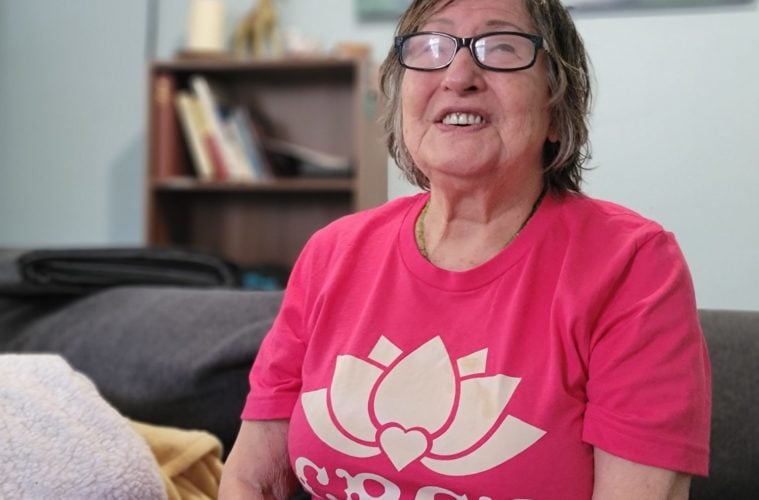We sat down with one of the two surviving participants in the U.S. government’s Compassionate Investigational New Drug Program into marijuana to discuss her take on the moment in cannabis.
Through the program, established in 1978, the National Institute on Drug Abuse provided University of Mississippi-grown outdoor pot to a handful of patients. It was a direct result of Robert C. Randall beating the feds in court on medical necessity grounds after he got caught growing cannabis to treat his glaucoma.
Elvy Musikka would join the program a decade later. She had begun self-medicating just like her federal patient predecessor Randall to deal with her glaucoma. Over the years, she received just over 115,000 joints from the government. Earlier this year, Musikka announced she was no longer taking part in the program after 32 years. Which raises the question, how bad does the weed have to be to turn down 300 free joints a month? Pretty bad. Before exiting the program, Musikka hadn’t used the sub-mid-grade cannabis in many years. Thankfully, she had access to a much higher tier of quality in her home state of Oregon.
Musikka started our chat by noting she’s seen the complete evolution of “Just Say No” since she first became a medical marijuana patient in 1975.
“I have seen a lot of changes,” Musikka told L.A. Weekly. “But it still moves too slowly. I can’t even imagine how there is still a serious prohibition and people are going to jail for partaking in the creator’s best present to the planet. And so, to me, this is a blasphemy against the creator’s work. This with this prohibition is.”
Musikka quickly turned to how thrilled she is to see patients in most states getting access to medical cannabis. It wasn’t quite as easy for her. She worked with Randall on her defense, and when the feds saw who was assisting her, they knew she meant business.
“When they knew my attorney was serious, all of a sudden I was approved. We’d been working on it since the beginning – since I got arrested up through my trial,” Musikka said. “Now the trial was over, and I won, so they had to cave in.”
Musikka was first surprised at the volume of cannabis she’d be receiving. “Medicating” to her meant sparking up a joint and taking a few pulls then lighting it back up and repeating the process a couple of times. Musikka looked to her advisers about the quantity, and they told her not to make an issue of it. She quickly understood where they were coming from.
“I was too happy to have the microphone,” Musikka said. “Because that’s all that can mean to me. It had my prescription on it. I could go, and I did, all over this country with the Cannabis Action Network.”
As Musikka notes, one of the main reasons to quit the program was the quality of cannabis it actually had access to. We asked what she thought of the recent move by the DEA to finally expand the pool of legal marijuana for research beyond the farm that filled her tins for three decades?
“I am so very happy that the federal government is allowing people who really know what they’re doing to grow marijuana because the excuse I’ve been getting for this last 30 whatever years is that it wasn’t worth all the trouble,” she replied.
Musikka never moped on the quality of NIDA pot. She found it to be just another reason to hit the road and advocate for medical cannabis.
“It was worth it because I could go and speak about what I believe in… all over the country. [It] was very important to me,” Musikka said. “I never lied. I just told them everything I learned. They wanted me to find the detrimental sides of using marijuana, and every time they asked me, I said, ‘Well, I’m still looking.’ Good luck on that one.”
As for watching the advocacy move from “getting access for the patients” to something more business oriented? The worst part was everyone switching the kind of hemp they grew.
“Yeah, it shocked me at first and I didn’t much participate in a lot of the expos because I saw, all of a sudden, I couldn’t buy the hemp clothes I like to wear, which was a big thing here in California and all through the Northwest especially and now all over the country,” Musikka said with a laugh.
She said she presumes everyone decided to grow hemp for extracts, not fiber, in recent years. A fair guess for sure.
Musikka closed the way she always has, calling on folks to contact their legislators, “To make sure that they understand that your support for this issue is very important to the people on the planet. This is no kids’ game.”
Advertising disclosure: We may receive compensation for some of the links in our stories. Thank you for supporting LA Weekly and our advertisers.

